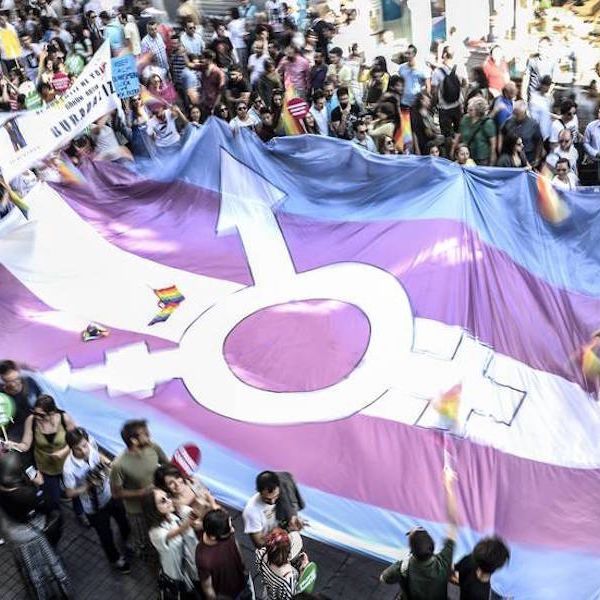I, like millions of other preteens, spent two hours a week in health class when I was sixth grade. Of course, I’d had health before and continued to until I graduated, but one particular class stands out in my mind as part of the reason I didn’t come out until high school.
I’m guessing it’s fairly common to teach children that if they don’t feel romantic attraction, or “that way," they’ll grow into it and that they just have to wait it out. That’s certainly true for some kids and certainly shouldn’t be excluded as part of the curriculum, however, it can make an already confusing age more so for LGBTQ+ children.
When I was seven years old, I realized that I thought girls were pretty. Not pretty as in “Barbie is so pretty," but pretty in a way that I liked them more than I liked boys. Of course, I was pretty young, so I told myself that I would grow into it. That was the narrative in my head without anybody else’s input. But come sixth grade, I’d started to realize that nothing was going to change—that I liked girls and it wasn’t a matter of maturing. But then, health class arrived.
We had a long conversation about romantic attraction, and my health teacher (who’s a gem, by the way; she was a great teacher) made sure to mention that if we didn’t feel those things yet, we would eventually. There are two issues here—one being that not everybody does end up feeling “that way." Aromantic people do exist in the world, and the idea that “you will eventually feel that way” being drilled into the heads of children negates the normalization of asexuality. The other issue is that when you’re little, romantic attraction isn’t as easily identifiable. So to some kids, saying that they might just grow into it means that what they’re feeling isn’t actually attraction and that they’ll understand later.
As a child who was in denial for several years, the already-present narrative being enforced by a teacher did nothing to help with accepting who I knew I was. Because of that one health class, I waited to come out for almost five years. I was a high school sophomore the first time I told anybody that I was gay because I was determined to wait it out until I was really really sure (surer than I was in sixth grade).
I'd like to add for any questioning teenagers who might be reading this (or their parents/teachers) that you will not grow into being straight. It's not a matter of maturity or something that just happens eventually. Sexuality is fluid and can change over time, but it's not because you're older. Even if you don't know if how you're feeling is how you'll always feel (who can ever really know that?), it's more than OK to embrace who you are at that moment in time. It’s important for adults to realize that the concept of “growing into it” can lead to further denial of preexisting romantic feelings or the feeling of being an outcast if they don’t ever feel that way, and the language we use around kids and preteens especially is critical to how they think of themselves and their sexuality.





















